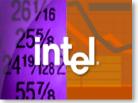|
Analysis: Why Intel settled
|
 |
March 8, 1999: 9:34 p.m. ET
Microsoft's run-in with City Hall offers important lesson: avoid a PR drubbing
|
NEW YORK (CNNfn) - Intel Corp. may have learned a lesson from Microsoft Corp.'s bruising antitrust trial: It doesn't always pay to fight City Hall.
Government lawyer David Boies has made mincemeat of many top Microsoft executives in the government's ongoing antitrust case, using e-mail documents they wrote to depict a ruthless software company.
That has bared an ugly side of Microsoft, one of the nation's most prominent companies. And it has raised the specter of a public relations debacle that Intel was just as wise to avoid, said one top antitrust expert.
"Presumably there would be facts and documents of Intel that it does not necessarily want to broadcast to the public," opined Kevin Arquit, former director at the FTC's bureau of competition.
Intel's behind-the-scenes settlement with the FTC, unveiled Monday, clearly averts the sort of public relations disaster Microsoft has faced in its antitrust trial brought by the Justice Department.
Intel, like a golfer whose partner who tees off first, has benefited from seeing the other half of the so-called "WinTel" monopoly go head-to-head with Uncle Sam.
"Someone who doesn't know the industry would think that Microsoft is the worst thing since Attila the Hun," said David Wu, an analyst at ABN Amro.
"Intel has been far more careful to avoid problems with the feds than Microsoft, and careful about inflammatory language," he said.
Different balls of wax
At face value, both the Intel case and the Microsoft trial center on the illegal use of their monopoly status.
But the differences are many between Intel's run-in with FTC regulators and the rough-and-tumble squabble pitting Microsoft against Justice.
The Microsoft case focused on the broader implications of whether its Web browser is an integral part of its market-dominant Windows operating system, or a separate software program.
Microsoft, for its part, leapt at a chance to downplay the parallels between its case and Intel's -- and indeed there are many differences.
"We view our situation as our situation," Bob Herbold, chief operating officer for Microsoft, said at a news briefing Monday as reported by Reuters.
The Redmond, Wash.-based software company has much at stake in its tussle with Justice. Some observers suggest the outcome could involve a break-up of Microsoft into tiny "Baby Bills" -- so named for founder Bill Gates.
The antitrust case strikes at the core of Microsoft's role as a player in cyberspace, the new frontier in computing.
Intel's case, however, is very specific. It concerns whether the chip maker illegally exerted monopoly power by withholding key information from three companies with which it had legal disputes.
The details of the Intel settlement deal aren't expected to be disclosed until the entire FTC meets in about two weeks.
The Intel case "is really a contract case masquerading as an antitrust case," said Rick Rule, a partner in law firm Covington & Burling who has been a legal adviser to Microsoft.
For that matter, Rule said, even had Intel won a full-blown trial, it would not have set an important precedent for the Microsoft case.
Intel's different corporate culture
But Intel simply had less to lose.
"Had the stakes been as high for Intel as they've been for Microsoft, Intel might have come out fighting just as hard -- and come out looking just as bad -- as Microsoft," said Drew Peck, a chip analyst at SG Cowen & Co.
Gates has looked even further back for precedents for the Microsoft antitrust case: the long-running IBM entanglements with the government in the 1970s and early 1980s -- battles from which IBM emerged victorious as a federal judge tossed out that antitrust case.
Intel's corporate culture traditionally has been more conciliatory than Microsoft's -- always on guard for antitrust behavior, legal analysts said.
Arquit, a partner at Rogers & Wells, said there was little likelihood of internal e-mails at Intel like those at Microsoft that have turned up in its trial like smoking guns.
"Microsoft has lots of documents and e-mails where there's a lot of unvarnished language. I suspect that Intel had a much more traditional antitrust compliance program, so that the evidence wasn't as stark," he said.
Intel's other fish to fry
While analysts said Intel watched the Microsoft case closely to formulate its strategy, a settlement may have come down to a simple matter of priorities.
"The last thing you want is a long, drawn-out war. It doesn't help your PR," said David Powers, an analyst at Edward Jones in St. Louis.
Intel has more pressing concerns to worry about, such as recent market-share gains by low-cost chip rival Advanced Micro Devices (AMD), and the burgeoning market for sub-$1,000 personal computers, said Powers.
In fact, the narrowing market share, Powers said, may have deflated the FTC's balloon. As the trial date neared -- it was set to begin on Tuesday -- there was much less of a case than the FTC thought.
Clearly, Intel couldn't have used monopoly power to boost market share, observers say, because the company has begun to lose share. Microsoft's Internet Explorer browser, on the other hand, has gained significant market share against the rival Netscape Navigator.
"This was a case about how Intel used intellectual property from its customers," said Powers. "It makes for a tougher case to prove when the competition improves, and customer are better off."
-- by staff writer Jamey Keaten
|
|
|
|
|
 |

|

